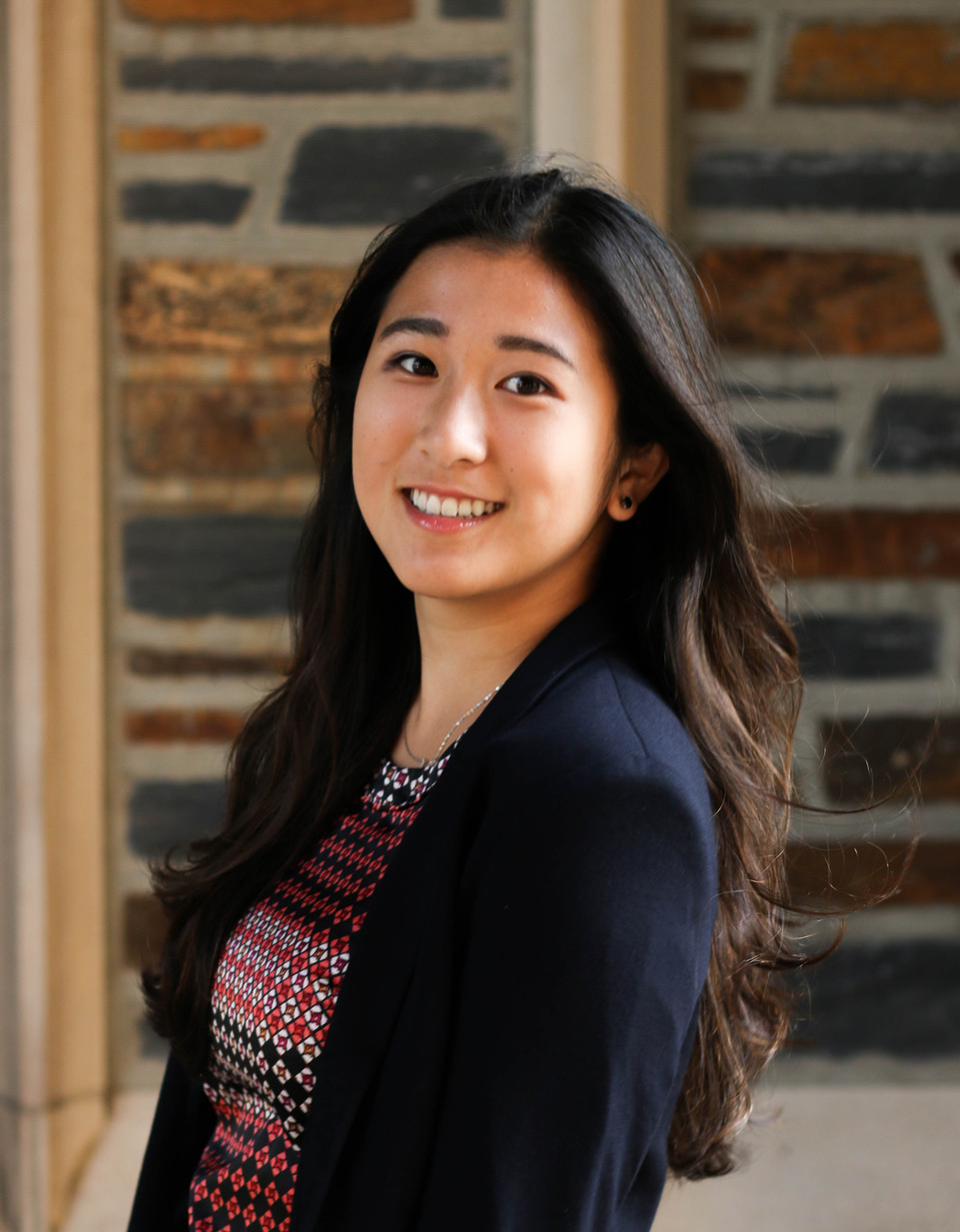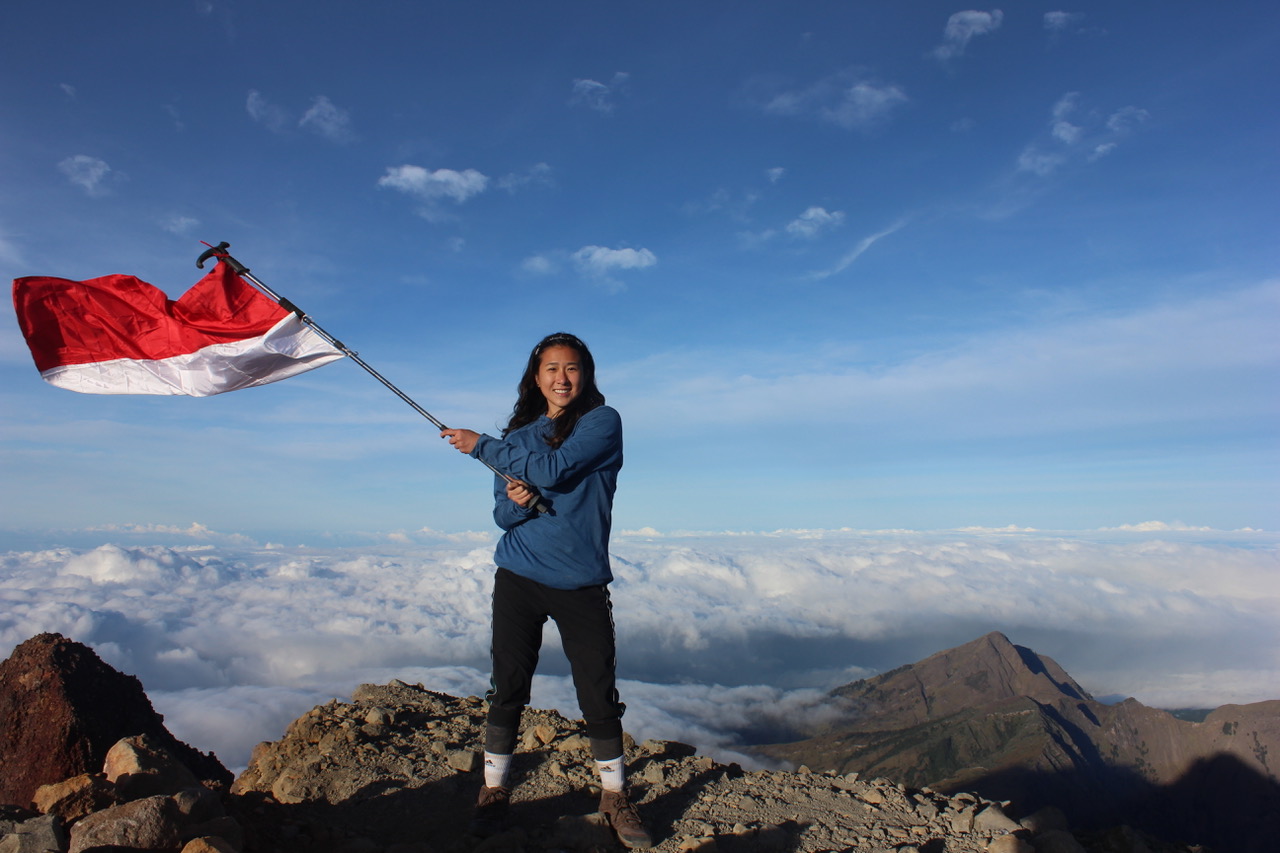Roberta Elena Lie

Elena Lie started her first recycling project at the age of eleven, and her passion for improving the Earth for all who live here has only continued to grow since. A self-proclaimed waste management and water closet enthusiast, global issues advocate, social entrepreneur and adrenaline-junkie who loves climbing beautiful mountains (of trash), Elena wants to bring the unsexy topic of waste to global attention. She’s already at the forefront of this waste revolution thanks to an incredible number of global initiatives, and there’s only one way to go from here!
“...toilets are one of those inventions that we really take for granted until we don’t have access to them ourselves.”
I’ve always had a love for the unconventional and the unglamorous. Growing up with overactive bladder contraction meant that I had to go to the toilet around thirty times a day. It became a survival skill for me to learn to urinate in unconventional places, most frequently in plastic bags and water bottles. Most importantly, it really gave me a personal connection to the very pressing global health problem of lacking adequate sanitation. I think toilets are one of those inventions that we really take for granted until we don’t have access to them ourselves. When I learned that 2.5 billion people lack access to toilets, it resonated with me so much that I made it my personal mission to change that.
I spent some time living in slums where I had no choice but to defecate in newspaper and throw my feces over the roof to develop toilet designs and a waste management system. I have been passionate about toilets for a really long time, but things really picked up when I was flown to meet Jack Sim a.k.a. Mr Toilet in his home in Singapore. It led me to working for his Bottom of the Pyramid Hub and creating my own toilet designs. I have been fortunate enough to absolutely LOVE toilets and to have dabbled on the different aspects related to it: design, policy, engineering, sludge management, commercialization and optimizing user experience. Since then, I have worked on sanitation projects in four countries and have only grown to love toilets more and more everyday.
How did you get the inspiration to start CashTrash?
CashTrash actually started in Nairobi, Kenya, where I entered a waste management challenge. I entered the challenge to work on toilets, but after extensive fieldwork, we concluded that the opportunity lies in recyclables. The idea was to create a marketplace for those recyclables, so CashTrash aims to integrate the informal and formal waste economy by becoming the marketplace to economically empower trash scavengers, make recyclables more economically attractive for factories, and eliminate the inefficient middlemen.
CashTrash in Indonesia reignited not long after I filmed, directed and edited the documentary on inefficient waste management systems. I learned so much about the system from making the documentary that I really was able to identify the problems in the value chain and propose a solution for it. I was fortunate enough to have been able to operate the machineries and become a bin woman, middleman, trash scavenger, etc to have a better sense of the system. I was also able to interview all the stakeholders, corporations, NGOs and government officials to get a better sense of the problem. This opened up an opportunity for me to enter the waste entrepreneurship space.
We are buying more things than ever and we are throwing away more things than ever, so I figured that someone would need to solve this problem that’s getting more pressing. The Greater Jakarta area relies on the informal economy, tens of thousands of trash scavengers, to sort and recycle their 70,000+ tons of daily waste. I wanted to change the flawed system because it currently leaves trash scavengers (the heroes of Indonesia’s waste management system) under the poverty line, and 89% of the city’s waste not recycled or composted. Currently, trash scavengers sell 1kg of plastic bottles for 2 cents, but the factories buy it for almost 40 cents, with the rest leaked into several middlemen. CashTrash sees this problem as an opportunity.
At age 13 you became vegan and at 15 you published an interactive book on veganism. What lead to that choice, and what do you want people to know about veganism?
“...it doesn’t have to be binary, and ... it’s okay to slowly transition back.”
I was the typical meat-lover who eats off the bones of her fried chicken and licks her ribs clean; I placed in a Chicken McNuggets competition and was offered to be a brand ambassador for Tony Roma’s ribs! I started becoming vegan less than a month after I got my first dog at thirteen, because I developed such a strong emotional connection to an animal. I always thought that being vegan was something I would never be able to do because I really love meat, and it really surprised me that I took that challenge and turned it into a lifestyle. Transitioning was really not easy, and truth be told, I was eating more french fries and oreos than salad when I first started.
One of the reasons I wrote the book was to answer repetitive questions like “Where do you get your protein?” with one sentence: “Read my book — it’s on iTunes.” I realize that people have a lot of preconceived notions on veganism, and I really wanted to debunk that, but I wanted it to be fun, colorful and engaging and not intrusive and aggressive. I wrote and fully illustrated my book, and I did a lot of research on its benefits for ourselves, our planet and the animals. I also made sure that I debunked myths, talked about nutrients and provided resources for those that choose to make the transition. The iBook placed in the Top 10 Best-Selling list in Australia for the Health and Fitness category.
My vegan journey and curiosity also led me to working in a pig slaughterhouse — I wanted to try for myself the work of those who have been doing the dirty work (killing my food) for me. I will always remember the shrieking sounds of pigs as they are being piled up and sent to be electrocuted.
Full disclaimer: I’m no longer vegan since I moved away from home, but I’m slowly getting back to adopting the lifestyle that has given me so much good. Being vegan was such a big part of my identity, that falling out of it was very difficult for me to accept. I have accepted now that it doesn’t have to be binary, and that it’s okay to slowly transition back.
What is your favorite inspirational quote?
“If you always put limits on what you can do, physical or else, it’ll spread over into the rest of your life. It’ll spread into your work. Into your morality. Into your entire being. There are no limits. There are plateaus, but you must not stay there. You must go beyond them. If it kills you, it kills you. A man must constantly exceed his level.” — Bruce Lee
A 20-something-or-other with an appreciation for the following: emergency medicine, lipstick, the suburban mother wine culture, commas, musical theatre and Taylor Swift. Catch her screeching along to the radio with the windows down or buried in blankets crying over overly-dramatic television; there is no in-between.



